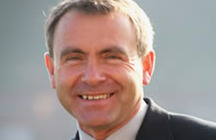Robert Goodwill – 2015 Speech on Air Travel and Alcohol
Below is the text of the speech made by Robert Goodwill, the Parliamentary Under Secretary of State for Transport, at the Hilton Metropole Hotel on the Edgware Road in London on 23 November 2015.
Introduction
Thank you.
I would like to start by paying tribute to the response of the UK aviation industry to the tragic loss of 224 lives aboard the Russian Metrojet flight 9268.
In difficult circumstances, over 16,000 British travellers and their belongings were safely repatriated.
The government’s first priority is the safety and security of the British people, and so as in Sharm el-Sheikh we will act wherever we need to.
Last week, the Prime Minister announced a doubling of our spending on global aviation security.
We know that our airports will maintain their vigilance in the face of the continuing terrorist threat.
Airports Commission
Last time I spoke at an AOA gathering, it was the 30 of June; the eve of the publication of the final report of the Airports Commission.
In my speech that day I maintained a disciplined and principled silence over the contents of the report, despite pleas from some in the audience that I lift the veil of secrecy just a little.
But the truth was that there wasn’t much chance of a give-away, because I didn’t know what was in the report either.
And for the avoidance of doubt all I will say on the matter today (23 November 2015) is that the Airports Commission report is being very carefully considered by the government.
Disruptive behaviour on planes
So I won’t be drawn on the taboo of airport capacity this afternoon.
I will, however, address an altogether different taboo.
Not as high-profile.
But I believe a matter on which there is need for an open, public debate.
And that is the problem of passengers who become disruptive on flights, particularly after drinking alcohol.
Several airlines have recently written to government expressing their growing concern about the problem.
I am pleased to say that AOA and BATA have already shown leadership in their desire to bring the industry together to find new solutions.
But the growing concern in the industry — particularly among airlines — is understandable
Over the summer, one airline reported over 360 incidents.
The knock-on effects of flight disruption affect the whole industry, airports included.
And an aeroplane is a unique environment.
A confined space, filled with families and other travellers, and while in the air out of the reach of traditional law enforcement.
There’s little chance that a drunken passenger could pose a threat to the plane itself, but some have tried.
Last week, a passenger on a British Airways flight was reported as having attempted to force open an exit door while mid-Atlantic.
She was restrained and arrested on landing, but the incident caused distress to her fellow passengers.
And disruptive and even violent behaviour on planes doesn’t just put the air crew and passengers at risk.
It also puts the individual themselves at risk.
In the UK, arrested flyers are subject to UK legal processes and enjoy legal protections.
But flyers into some other countries could be subject to very different laws and far lower levels of legal protection.
Clearly, no one party — airlines, airports or government — can solve this problem alone.
Yet within our own sphere of responsibility we can each act to reduce the risks.
Airlines need to look at their approach to serving alcohol on board.
Jet2 have begun a campaign they call Onboard Together, which seeks to educate passengers and empower their crew.
The government must make sure that enforcement is effective.
And we know that for a proportion of passengers, their holiday begins in the airport bar, whether they arrive at the airport at 7 in the evening or 7 in the morning.
For some passengers, a delayed flight means that the first drink of the holiday quickly becomes the first 3, 4 or 5 drinks.
And in at least one airport today, passengers are able to pull their own pints at their table.
We don’t want to stop passengers enjoying themselves or prevent people from flying.
But we do want people to put a break on before things get out of hand.
Already, some airports are taking new steps.
Glasgow and Manchester Airports are trialling the sale of duty free alcohol in sealed bags.
And a couple of weeks ago I visited Edinburgh airport, where clear warnings about the risks of drunkenness are displayed on the airport’s bars and tables.
Edinburgh has formed a partnership with the airport police who now maintain a visual presence around bar areas and give potential troublemakers a gentle word of caution.
The police can be a great and willing help where a risk of drunkenness has been identified, and can work with airports to locate officers near boarding gates for flights that have proven problematic in the past, or for flights that have been delayed.
Clearly, different airports will prefer different approaches.
Often, working with airlines can be key.
Perhaps to identify the most trouble-prone flights.
Or even to identify passengers with a history of poor behaviour, as long as concerns about privacy and proportionality are addressed.
So I hope we can agree on the need to keep talking about this — to each other, and to passengers.
Our aim should be to ensure that flying is a safe and enjoyable experience for all travellers, and that flying doesn’t end badly for the careless few.
Success of airports
But I won’t end on a note of challenge.
Because the truth is that the aviation industry is overwhelmingly succeeding in delivering a brilliant service.
The proof is that there are now more people using your airports than ever before in history.
In the 12 month period to March 2015, passenger numbers at UK airports reached record levels.
And the signs are that the numbers are still growing.
You are also making a huge contribution to Britain’s record employment levels.
Around a quarter of a million people are directly employed in the aviation and aerospace industries, and many more are employed indirectly.
The future is looking bright, too, as we are seeing massive investment in airports across the country.
Bristol’s western terminal extension is under way and scheduled for completion by the summer.
Over the next 5 years, Luton will invest £100 million in its terminals.
Edinburgh will invest £125 million in its terminal, departure lounge, check-in and immigration facilities.
Heathrow is improving Terminals 3 and 4, and both Gatwick and Manchester Airport are each investing £1 billion in their terminals.
Conclusion
So I am grateful to everyone who works to keep our airports running and improving.
Through your enterprise, your commitment to customers, and the connections you give us to the rest of the world, you make an unparalleled contribution to Britain’s national prosperity.
You have this government’s support, and we look forward to working with you in the months ahead.
Thank you.


